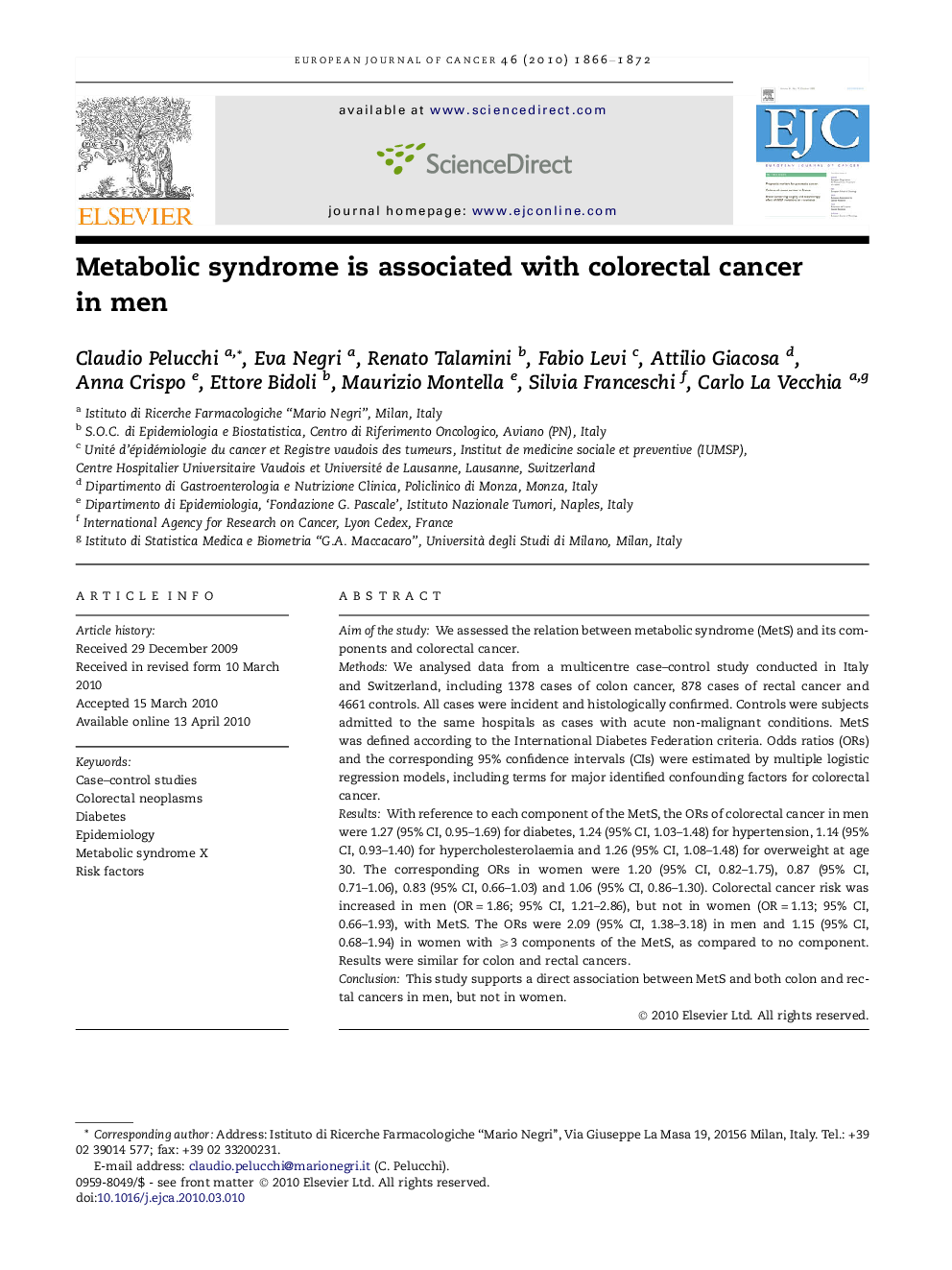| Article ID | Journal | Published Year | Pages | File Type |
|---|---|---|---|---|
| 2123324 | European Journal of Cancer | 2010 | 7 Pages |
Aim of the studyWe assessed the relation between metabolic syndrome (MetS) and its components and colorectal cancer.MethodsWe analysed data from a multicentre case–control study conducted in Italy and Switzerland, including 1378 cases of colon cancer, 878 cases of rectal cancer and 4661 controls. All cases were incident and histologically confirmed. Controls were subjects admitted to the same hospitals as cases with acute non-malignant conditions. MetS was defined according to the International Diabetes Federation criteria. Odds ratios (ORs) and the corresponding 95% confidence intervals (CIs) were estimated by multiple logistic regression models, including terms for major identified confounding factors for colorectal cancer.ResultsWith reference to each component of the MetS, the ORs of colorectal cancer in men were 1.27 (95% CI, 0.95–1.69) for diabetes, 1.24 (95% CI, 1.03–1.48) for hypertension, 1.14 (95% CI, 0.93–1.40) for hypercholesterolaemia and 1.26 (95% CI, 1.08–1.48) for overweight at age 30. The corresponding ORs in women were 1.20 (95% CI, 0.82–1.75), 0.87 (95% CI, 0.71–1.06), 0.83 (95% CI, 0.66–1.03) and 1.06 (95% CI, 0.86–1.30). Colorectal cancer risk was increased in men (OR = 1.86; 95% CI, 1.21–2.86), but not in women (OR = 1.13; 95% CI, 0.66–1.93), with MetS. The ORs were 2.09 (95% CI, 1.38–3.18) in men and 1.15 (95% CI, 0.68–1.94) in women with ⩾3 components of the MetS, as compared to no component. Results were similar for colon and rectal cancers.ConclusionThis study supports a direct association between MetS and both colon and rectal cancers in men, but not in women.
